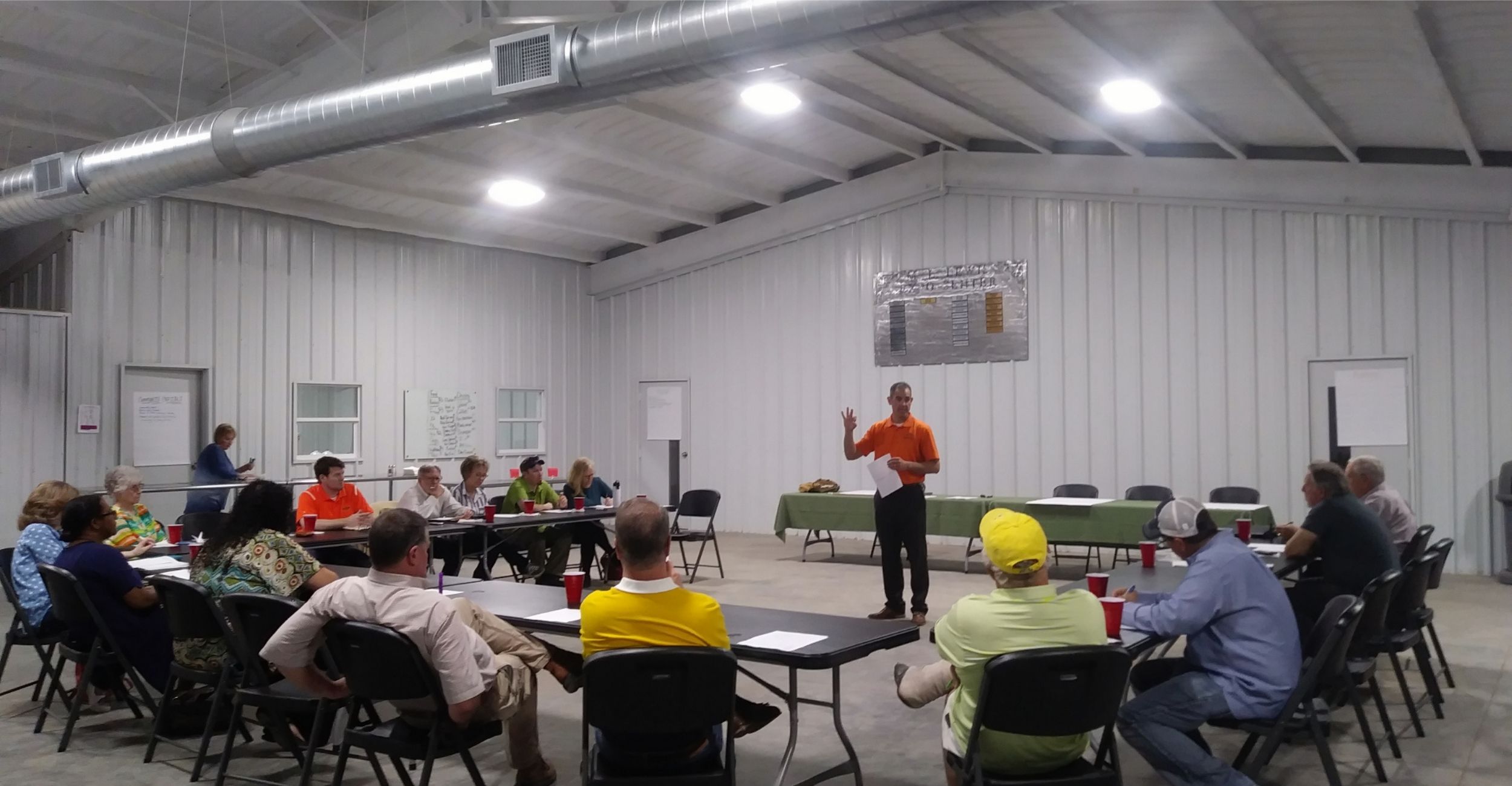
The initiative helping to rebuild rural towns
Friday, April 30, 2021
Media Contact: Lyn Putnam | Communications Specialist | 405-744-5496 | lyn.putnam@okstate.edu
In Clinton, Oklahoma, Pop Hicks Restaurant and the Glancy Motel once were legendary landmarks along Route 66. Operating side-by-side, they provided drivers with a place to eat and a place to rest on the long highway stretching across the U.S.
In the many years since their peak, Pop Hicks Restaurant has burned down and been unable to be rebuild due to a lack of customers. The Glancy Motel has literally begun to fall apart one piece at a time and has been condemned twice by the city council for its poor condition.
This story of rural decay may sound familiar to many Oklahomans. As America’s urban centers have experienced exponential growth, rural towns around the United States have received the toll of that expansion: smaller municipal budgets, dilapidated buildings, and a lack of new businesses. Recognizing the struggle that many rural areas are facing across the United States, a group of OSU professors decided that they would put their talents to use to push back against that decline.
“Now obviously, money helps almost any issue,” Co-director Dr. Paul Weckler said. “However, [Co-director] Dr. [Shane] Robinson and I are not going to go start a business. But we could research business opportunities, what factors are needed for success in rural areas, and what the risks are.”
So Drs. Tyler Ochsner, Robinson, Weckler and Mark Woodring — whose research specialties range from soil science to rural health — applied for an OSU grant to research and take action for rural areas in 2019. After they received it, they set up the Rural Renewal Initiative (RRI).
The work of the Rural Renewal Initiative has contributed to OSU’s ranking of sixth in the United States in the category of Sustainable Cities and Communities, and fifth in the U.S. in Partnerships for the Goals in the Times Higher Education IMPACT rankings.
“There are significant needs that exist in small towns and small communities that are often overlooked, and we wanted to extend our efforts at the university to help them,” Robinson said.
There have been many efforts to help rural areas since the Great Depression. However, most of them have targeted several rural communities broadly on just one issue. The RRI took a markedly different approach.
“We decided that we would focus on a couple of specific areas and include all issues,” Weckler said. “Like healthcare, economic development, protection of natural resources and technology, everything.”
The Rural Renewal Initiative has thus far focused on two counties in Oklahoma which lead in both population loss and poverty: Harmon and Tillman. Rather than taking a role where they instruct the counties about what their problems are and how to fix them, the RRI has interviewed them and engaged in discussion with the communities to find what their priorities are for rural renewal.
“It’s not our job or role to push something into a given community that’s not wanted,” Robinson said. “I want the community to be able to use the data we give them and the findings we uncover to be able to address what they view as problems.”
Aside from rural research from its team members, the RRI has three main activities that it uses to push for rural renewal. The first is a rural scholars program, which aims to develop rural scholars by helping them gain experience in community-based research, so that they can help make a noticeable difference in rural communities. The second is a seed grant to attract researchers from across OSU to rural renewal research. Last is a symposium and two annual prizes that call attention to the best rural renewal research and work to help rural communities.
Part of the problem with rural communities that are struggling is how rural issues often compound upon each other. For example, when rural hospitals are shut down — telehealth, or healthcare through the internet — should be an ideal option. However, internet in rural communities is often bad, which leaves both internet and healthcare in a dire situation. In the same way, population loss can contribute to worsening infrastructure, and poor infrastructure can contribute to population loss.
“[With rural communities], it’s really hard to solve one issue at a time because the problems are multi-faceted and intertwined,” Robinson said. “The only way we’re going to address them is if we work together with the community on all issues simultaneously.”
The RRI acknowledges there is probably no way that rural communities will all have access to the same benefits as urban communities.
“Even so, we’d like to see those disadvantages leveled out,” Weckler said. “To me, rural renewal is about giving rural areas some of the benefits that are taken for granted in other suburbs, cities and towns.”
Story By: Zach Kluver | zachkluver@gmail.com
